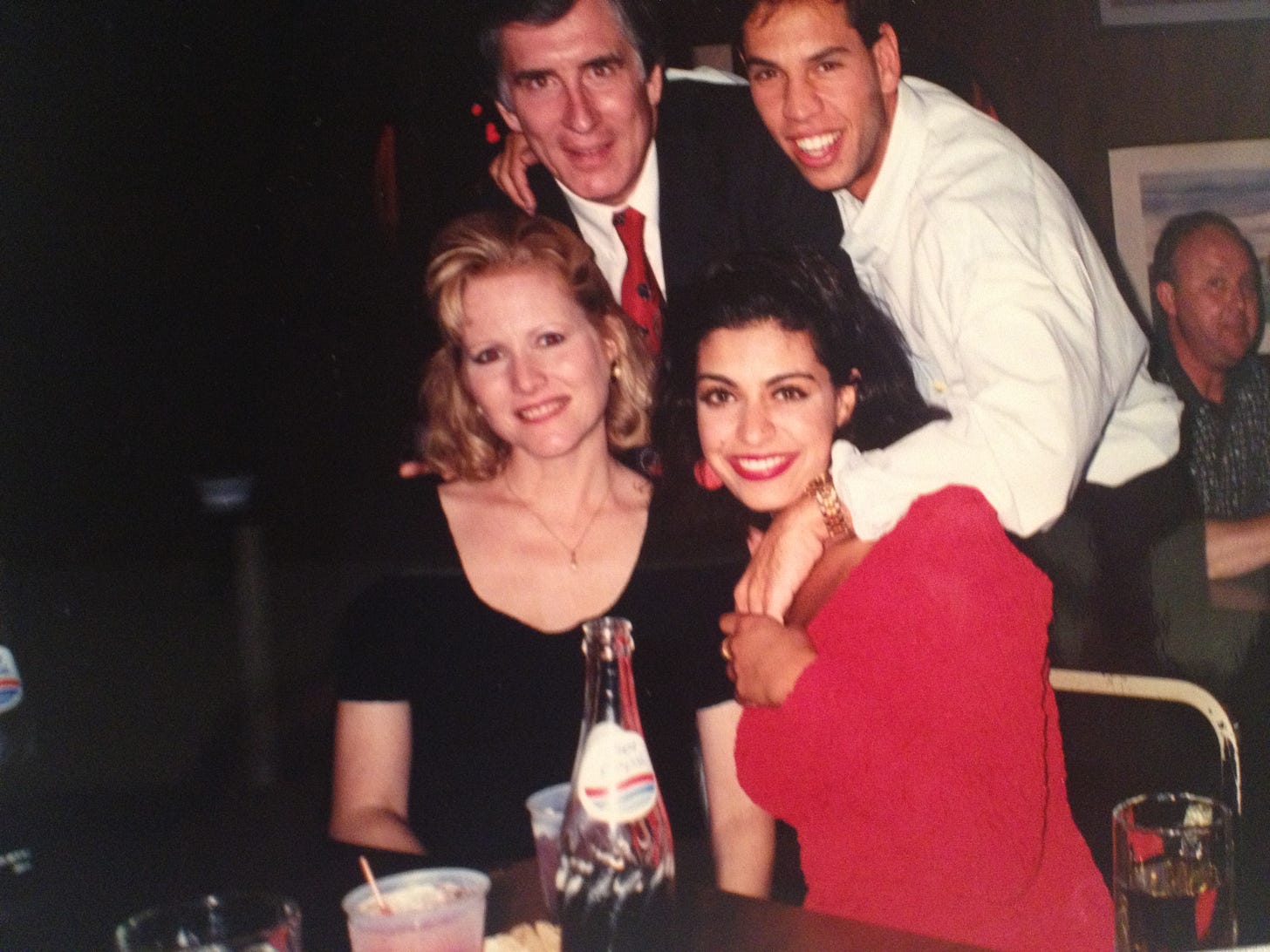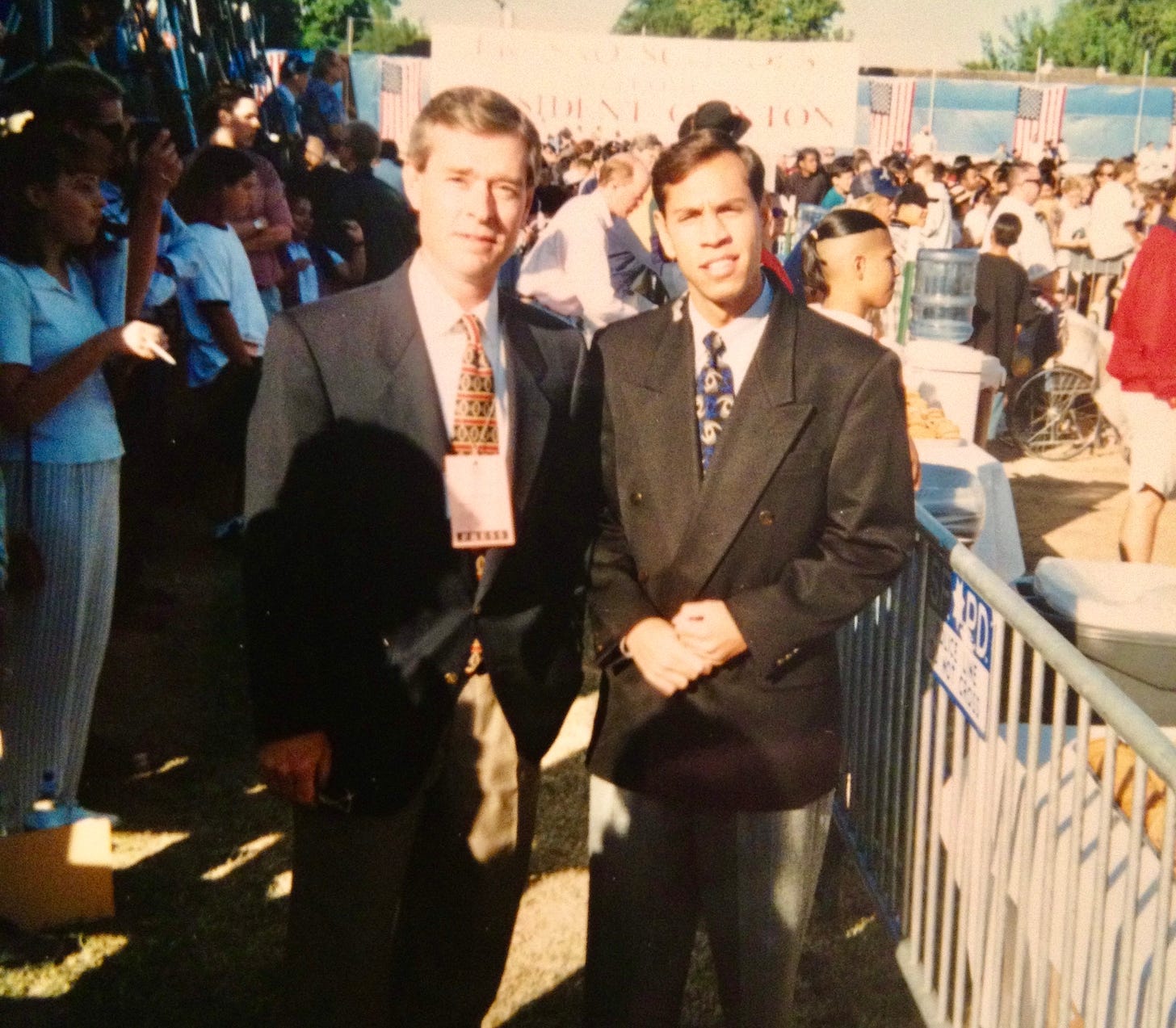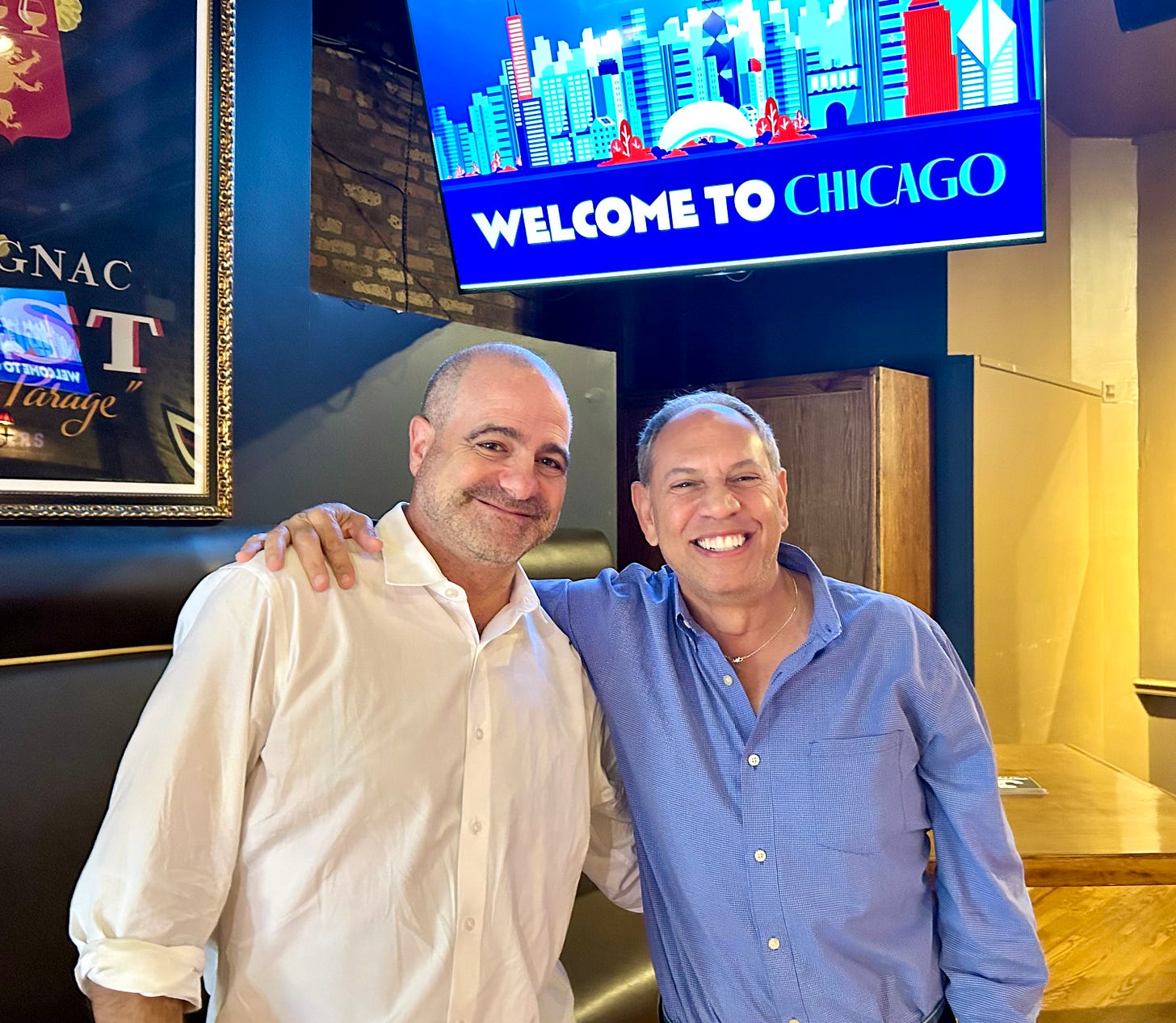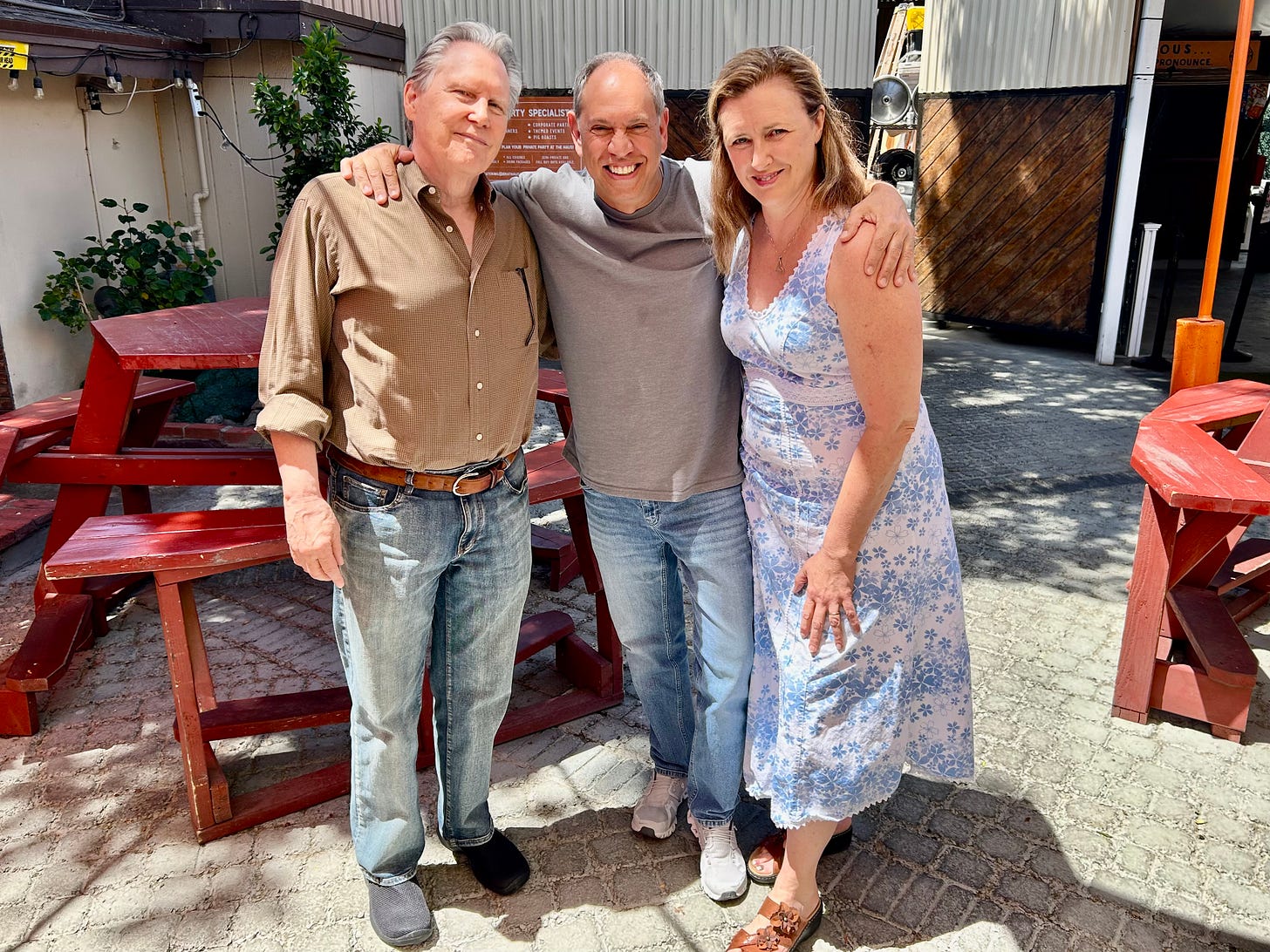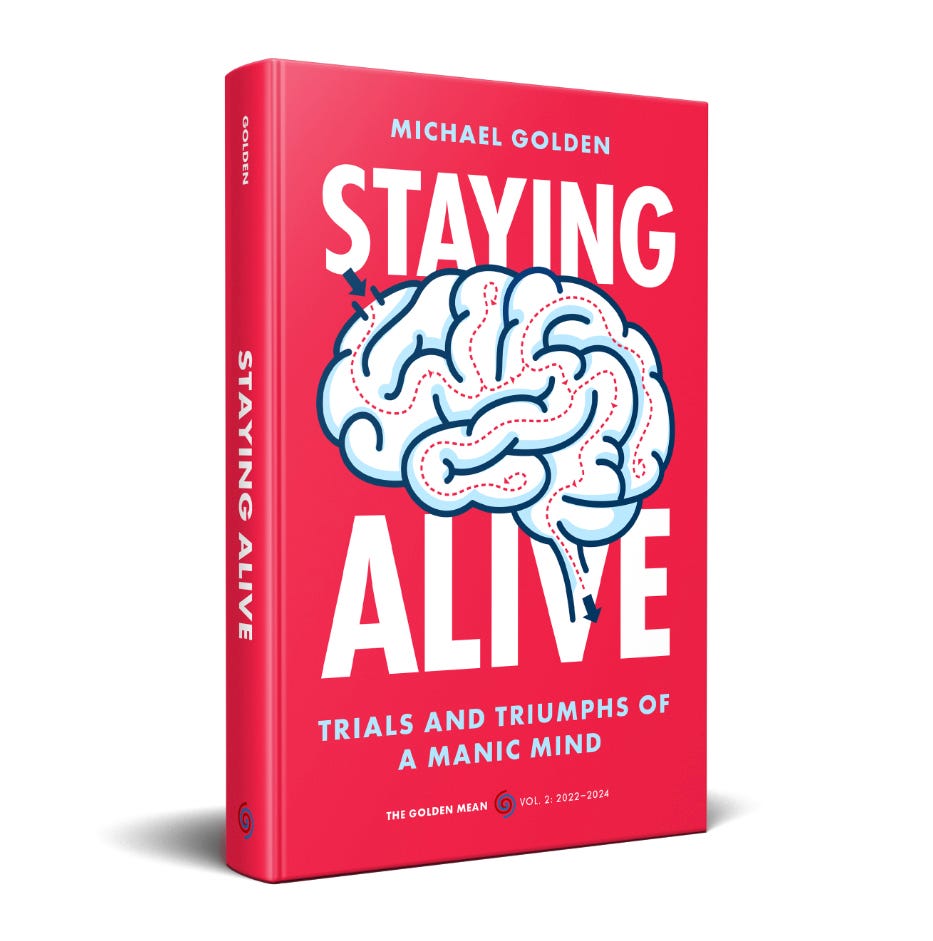The Grand Gift Of Mentorship
"I'd call it 'ironic' if it weren't so damn obvious: Giving is its own reward. And what a waste it would be for anyone with any type of expertise to keep it all bottled up."
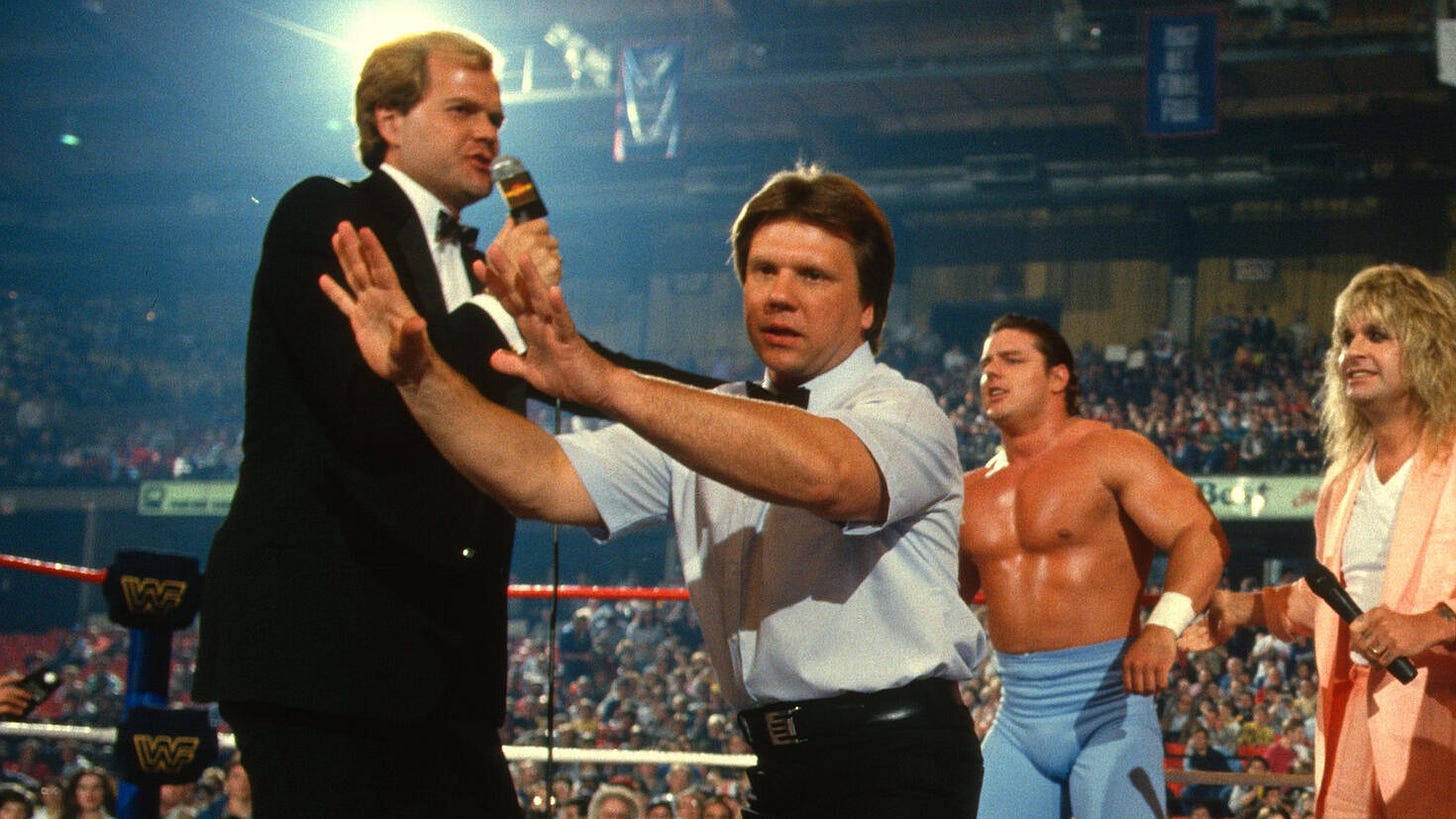
When I was 14, a whirlwind of a sports broadcaster named Chet Coppock descended upon the city of Chicago. He was a larger-than-life, W.C. Fields type of character. Loaded with talent and originality, the guy was too funny for words.
After I graduated from Indiana and was about to begin my broadcasting journey, I approached Chet one night at a Chicago Bulls game. I sneaked down past the security guards onto the stadium floor, accosting him as only a Golden knows how. To my surprise, Chet gave me his card and told me to come downtown one day and meet with him at the Sears Tower.
When I sat down in Chet’s office, it wasn’t any great shakes. In fact, he questioned me as to whether I had the mettle to go work in small TV markets and inch my way up the broadcasting ladder. Chet wasn’t a “mentor,” per se, but he gave me his time, his advice — and a spark. The next time I would see “Chester” was two years later at a Blackhawks game when I was reporting for a show on SportsChannel. He instantly gave me a knowing nod and smile.
The first real mentor I had in my career was a man named Ken Gullette, who hired me to work in his newsroom at CBS-TV in the Quad Cities. Though Ken was the news director, he was still a reporter at heart, and he taught me how to write better, match words to video, and how to cover politicians. I was out of the Quads and on to a bigger market in just over a year, in large part due to Ken. The “Boss” and I are still in touch, and he still roots for me.
At NBC in Fresno, California, the main anchor, Bud Elliott, quickly became my second mentor — and a lifelong friend. I have written in this space about his brave and ongoing battle with Parkinson’s. But long before that, he sat next to me in the KSEE-TV newsroom and continued my education. The first time I ever covered a presidential event was in 1996, doing live shots all day with Buddy. He settled me down right when I arrived, and quietly gave me tips as we covered President Clinton’s rally. I laughed and learned a ton with Bud.
After a short stretch at the ADL, where Chicago Director Rick Hirschhaut imparted nonprofit wisdom to me that would be invaluable years later, in 2001 I began a political career. I was introduced to a prominent strategist named Eric Adelstein, who said he’d keep his eye open for me. A few months later, he called and said he had a congressional race where a smart new candidate, Marty Castro, was running a long shot campaign against an entrenched incumbent, Luis Gutierrez. I’ll never forget what Eric said when he asked me to be Marty’s press secretary: “Wanna step into the breach? Slay some dragons together??”
Throughout 10 years of running campaigns, and then another 15 years of friendship which included plenty of life advice, Eric became an all-pro mentor to me. Whenever I was worried about a big hurdle or felt ambivalent about a decision, Eric would settle me down in less than five minutes. He’d calmly lay out the situation and make it all seem far less complicated. His favorite expression: “Hey, we control what we can control.”
In 2006, as I took a break for a couple years from politics, David Scherer asked me to launch a community college scholarship program with him and four other folks. As we now near One Million Degrees’ 20th anniversary, the OMD team has helped thousands of hardworking students to achieve their degrees.
The word “scholarship” implies financial aid. That was part of the OMD model — but not really the essential key. The students we assisted needed more than money; they needed motivation, inspiration, life skills and a sense of connection and community. It was our “mentoring” program (now “coaching”) that kept our students’ eyes on the academic prize.
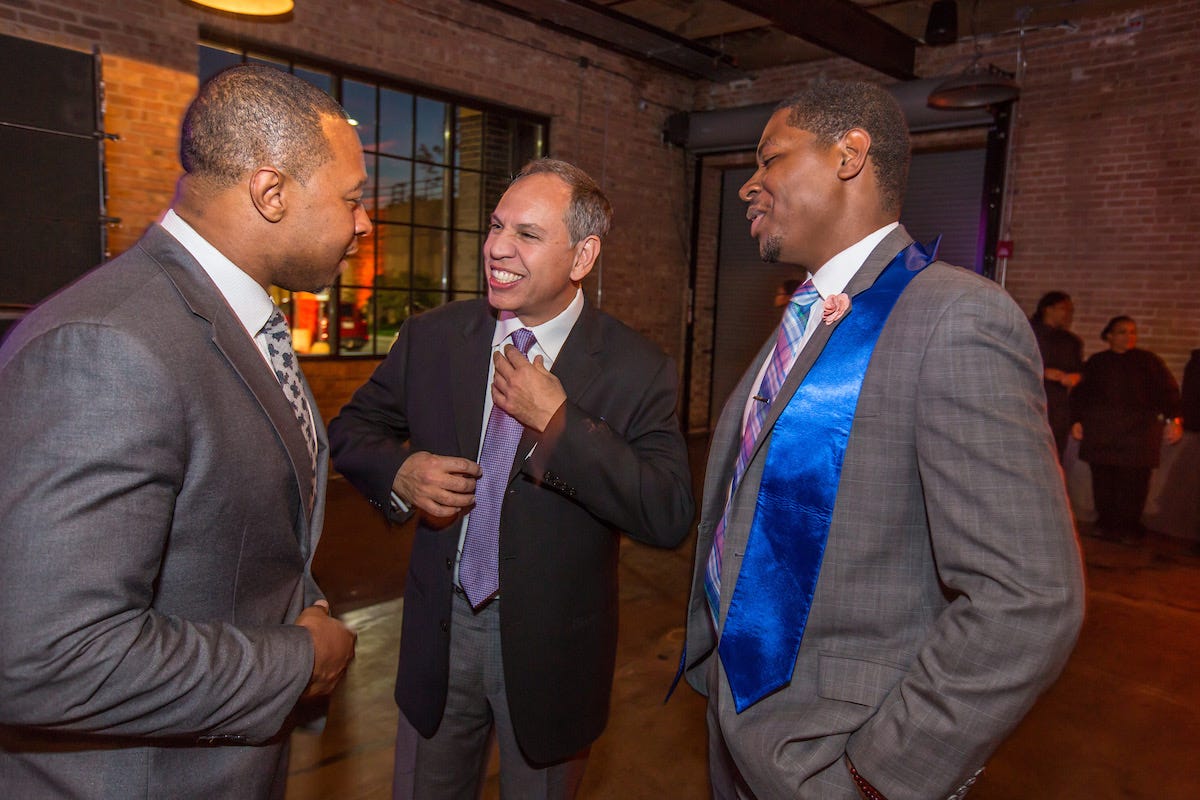
But the mentoring program was not only beneficial to our scholars. The professional folks we recruited to volunteer to do one-on-one coaching, within larger group sessions, derived just as much if not more fulfillment from their service — including me. Soon enough, we had partnerships with corporations in Chicago who wanted their employees to give and receive as OMD coaches. They wanted to improve their own cultures, which happens through growth and development. I would call it ironic if it weren’t so damn obvious: Giving is its own reward. What a waste it would be for anyone with any expertise to keep it all bottled up.
Ten years ago, at the age of 48, I set out to write my first book. I had a whole set of ideas for how to go about repairing the total mess that was the U.S. Congress. I’d never written a book before, nor done any scholarly work on government, so I figured running my ideas by some folks with deep knowledge would be a good idea.
I started at the top. Never hurts to lob the long ball. I had read Norman J. Ornstein’s epic book on Congress, The Broken Branch, and Norm was one of the foremost experts in the country on American government. Out of the blue, I emailed him and asked if he would meet with me when I next visited D.C. Not only did Norm sit and listen to my rambling diatribe, he became a generous mentor to me in nearly every way: He gave me interviews for my book, retweeted my writings to his larger audience, agreed to coauthor an article with me in the NY Daily News, and showed up as a guest more than once on my podcast. I still don’t know how to repay the man I dubbed “The Dean.”
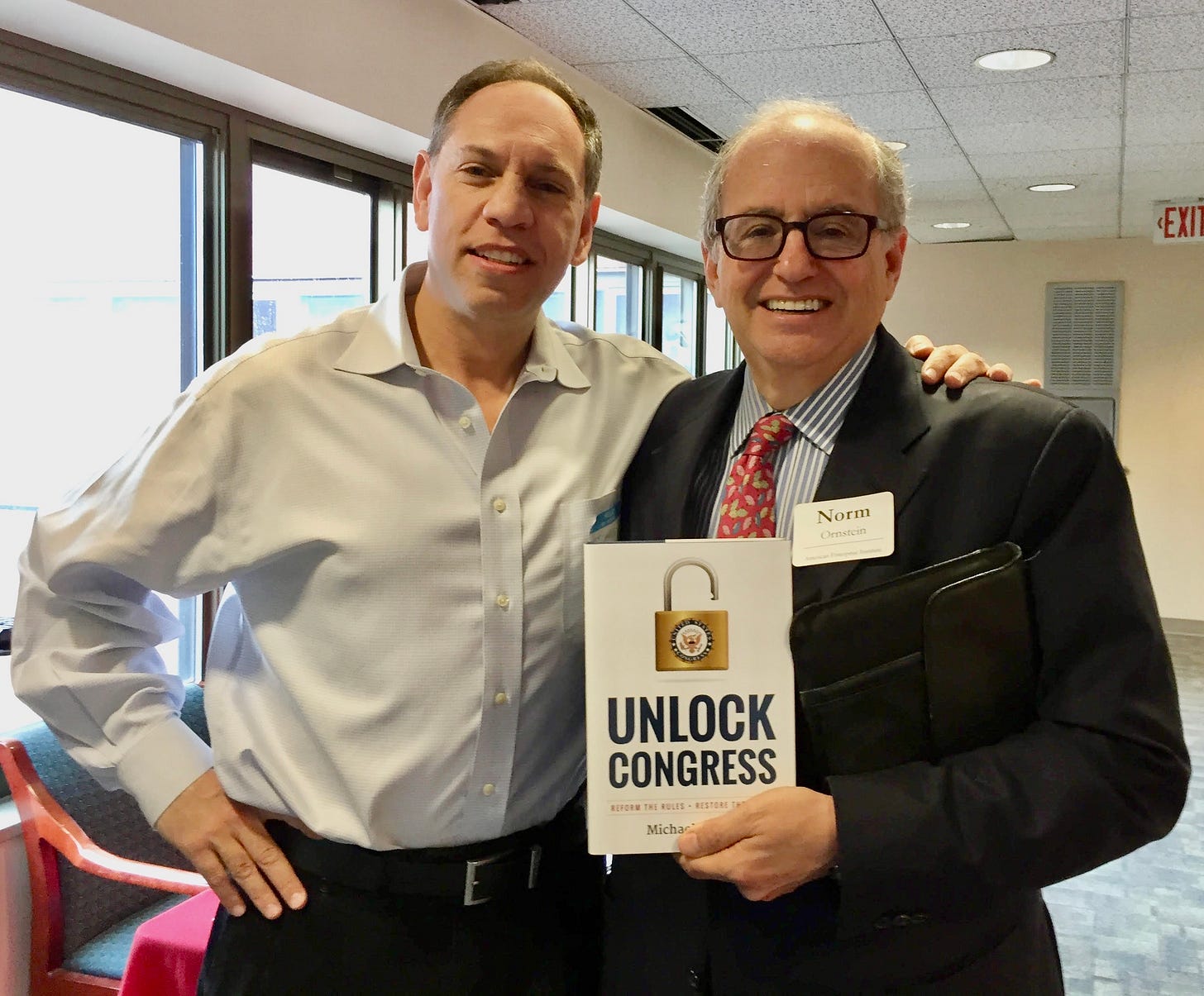
You’d think that by age 50 a person would be past meeting new mentors. But if you keep learning new things, there’s always someone around to guide you.
The summer I prepared to start teaching in Arizona State University’s School of Politics and Global Studies, I didn’t know what the hell I was doing. I emailed two ASU professors I saw online and said I needed “help!” Tara Lennon and Jack Crittenden basically taught me how to teach. They also became great friends of mine in my new Arizona life. In fact, I’d better get moving if I’m going to be on time for lunch with them today.
Mentorship, whether giving or receiving, is one of life’s truly great gifts. It is done by choice, and if done well, imparted straight from the heart.
And it is never too late to start.




